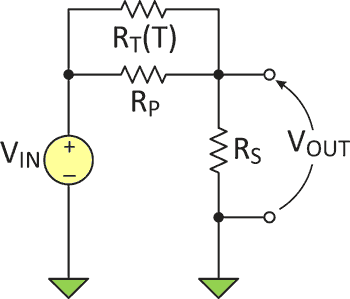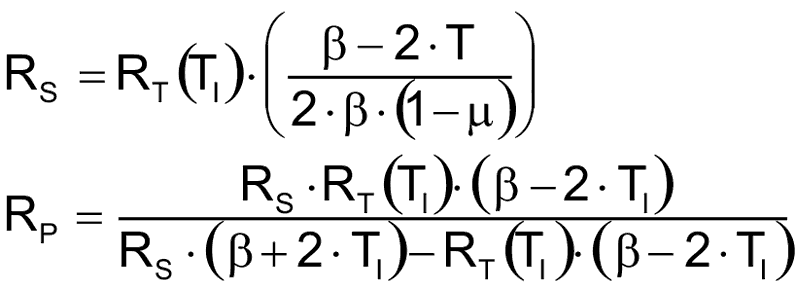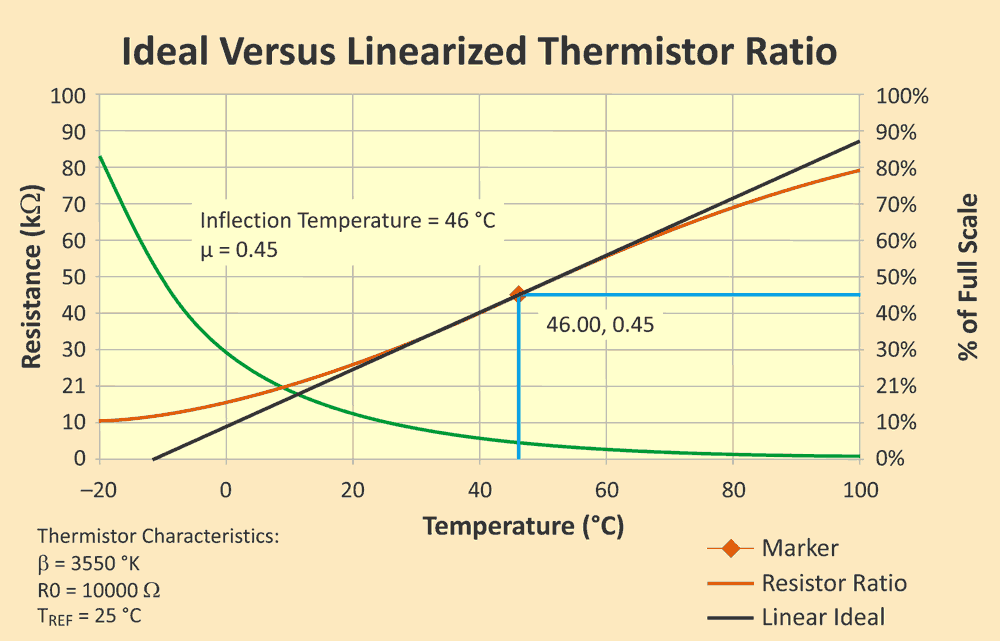Mark Bieger
EDN
I often have to get a reasonably accurate temperature measurement for a laser, transistor, or printed circuit board. I usually use a thermistor for my temperature sensor because they are inexpensive. However, the thermistor’s nonlinear resistance characteristic makes accurate temperature conversion complex. To minimize this difficulty, I often linearize the thermistor’s resistance characteristic by placing the thermistor within a resistor divider. This linearized response is simpler to convert to a temperature value than the thermistor’s raw response. To obtain an optimum level of linearity, I have derived a pair of formulas that are useful in determining component values (RS and RP) for this common linearization circuit.
Figure 1 shows the thermistor linearization circuit that I am addressing in this Design Idea. The temperature of the thermistor is linearly related to the output voltage (approximately).
 |
|
| Figure 1. | Two-resistor thermistor linearization circuit. |
The design process begins by picking a temperature, which I call the inflection temperature TI, at which we want the flattest possible transfer function (VOUT/VIN). My design task is to compute values for RS and RP given TI and the resistor ratio
![]()
at TI.
Three parameters, R0, β, and TREF, are often used with Eq. 1 to model the thermistor’s resistance versus temperature characteristic
| (1) |
I determine RS and RP by setting the second derivative of VOUT/VIN in Figure 1 to 0 at temperature TI. After much algebra, I obtained the two formulas shown in Eq. 2.
 |
(2) |
Not all ratios are possible with passive components – ratios less than
![]()
result in negative RP values.
Figure 2 shows a graph of the linearized thermistor voltage transfer function for a common thermistor.
 |
|
| Figure 2. | Graph of the linearized thermistor transfer function. |
I have put together an Excel spreadsheet and a Mathcad worksheet that models this data, downloadable below.
ZIP archive of spreadsheet & worksheet (please use "Save as" and remove the dummy .txt extension before saving)
